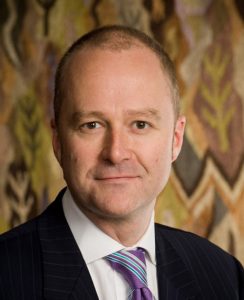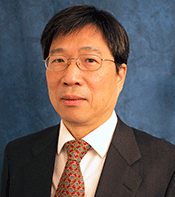The Open Access Scholarly Publishers Association recently sat down with Stuart Taylor, publishing director of the Royal Society and their very own, newly appointed OASPA board member, for an interview. Taylor holds 30 years of experience in publishing and has witnessed many changes within the industry, such as the introduction of the open access model.
“I began in the commercial sector. Back then, open access wasn’t a topic I was aware of at all and the concept of open access publishing hadn’t even been invented,” says Taylor.
By the end of the 1990s, however, Taylor says the rumblings of an open access model began to make its presence within the publishing community, which at that time, “Was seen only as a threat to commercial companies. Something to be fought or at least contained.”
He says it was after the millennium when publishers began to realize that a new open access world might be inevitable and shifted their efforts to figuring out what that might look like.
Taylor says of today’s publishers, he believes ECS has embarked on particularly innovative work to progress this fully open access initiative.
“The Electrochemical Society is looking to move to a platinum open access model so they don’t have to charge APCs; have a look at their Free the Science project. I think that’s a bold and exciting initiative,” says Taylor.
A compliment, in particular from Taylor, who contributes to the continued mission of the Royal Society since the 1660s: to recognize, promote, and support excellence in science and to encourage the development and use of science for the benefit of humanity. The Royal Society are the publishers of the world’s first science journal, Philosophical Transactions, in 1665. Of which Taylor says that even in those times, carried out a basic kind of open access practice, overprinting and sending copies of journals around the world to universities and other societies to spread knowledge.
Today, almost half of the Royal Society’s journal articles are immediately published open access, launching their first pure open access journal, Open Biology, in 2011.
“Open access is at a pivotal point right now and it’s perhaps never been more important to have a voice for those most closely involved in shaping the future of OA,” says Taylor.
None of the progress that had been made could’ve been achieved without the help of the funders. Taylor notes that supporters of OA are “really starting to realize the key role they can play in driving forward open access and have become real game changers.”
As far as the future of open access, Taylor says, “I’d also like to see much greater awareness and genuine support among researchers themselves; it is they who are at the center of it all.”
He also hopes to see open access fully established in five years as the standard publishing model, with widespread support from governments, funders, and institutions worldwide and stable funding streams.
In regards to the future of OASPA and his role as a board member, Taylor says, “OASPA is currently looking forward to playing a key role in shaping European policies on open access. We have seen the start of some really strong policies in Plan S, and indeed we already have them from other funders such as Wellcome and Gates. I’m very much looking forward to seeing more of these policy developments and for OASPA to be able to play its part in helping to implement them.”
ECS President Yue Kuo spoke on the Free the Science and open access initiatives on the ECS podcast in 2017, then ECS Senior Vice President:
“My way of thinking about Free the Science is consistent with another trend for the world: democracy. Democracy, in principle, is the idea that everyone has the right to be involved. Free the Science has a similar purpose. Free the Science basically says that human beings should have the freedom to access knowledge. Free the Science provides the chance for the free flow of science from the creator of the knowledge to the one how needs to use it.”
Hear Kuo’s full podcast below.



